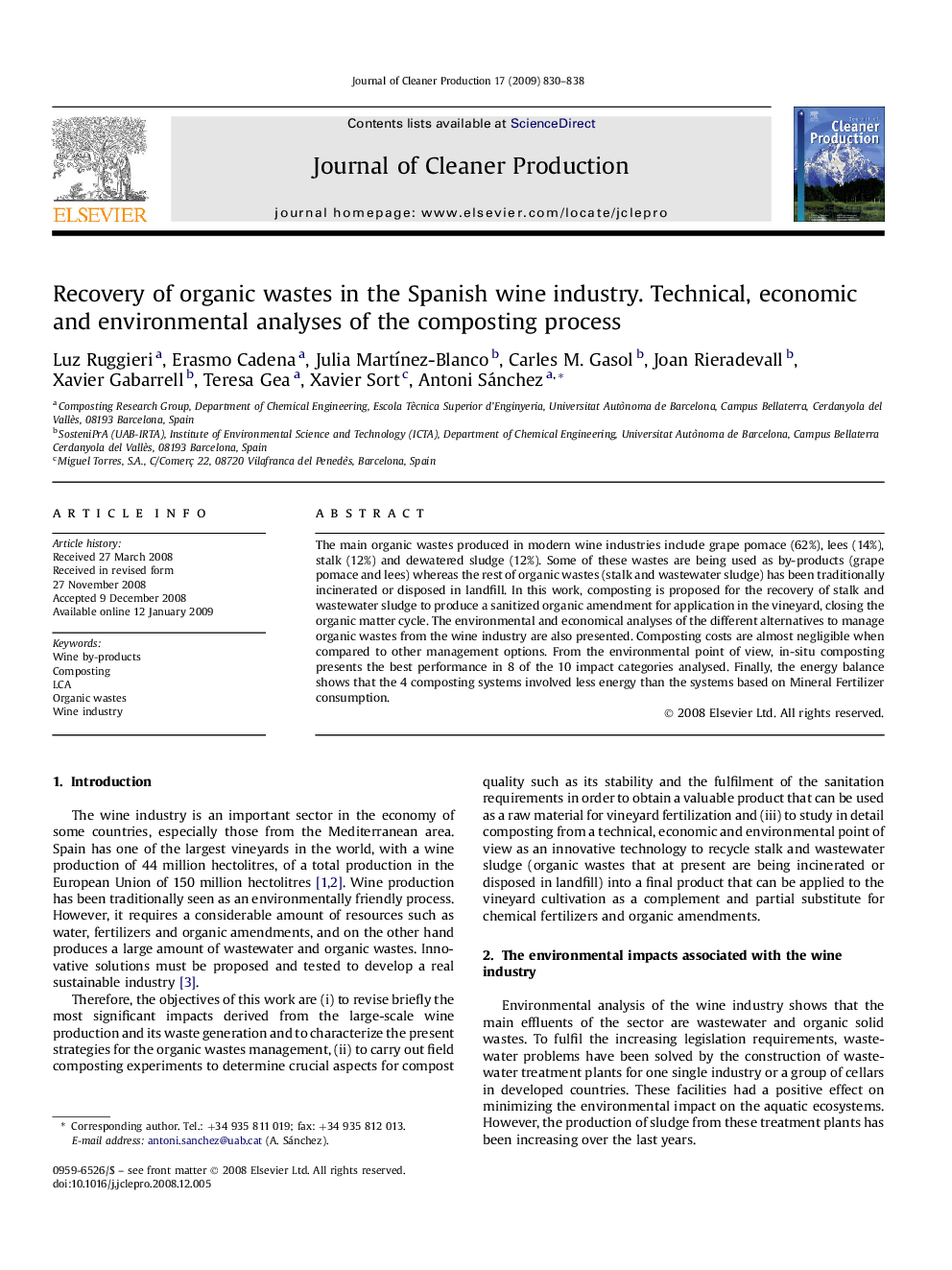| Article ID | Journal | Published Year | Pages | File Type |
|---|---|---|---|---|
| 1746957 | Journal of Cleaner Production | 2009 | 9 Pages |
The main organic wastes produced in modern wine industries include grape pomace (62%), lees (14%), stalk (12%) and dewatered sludge (12%). Some of these wastes are being used as by-products (grape pomace and lees) whereas the rest of organic wastes (stalk and wastewater sludge) has been traditionally incinerated or disposed in landfill. In this work, composting is proposed for the recovery of stalk and wastewater sludge to produce a sanitized organic amendment for application in the vineyard, closing the organic matter cycle. The environmental and economical analyses of the different alternatives to manage organic wastes from the wine industry are also presented. Composting costs are almost negligible when compared to other management options. From the environmental point of view, in-situ composting presents the best performance in 8 of the 10 impact categories analysed. Finally, the energy balance shows that the 4 composting systems involved less energy than the systems based on Mineral Fertilizer consumption.
